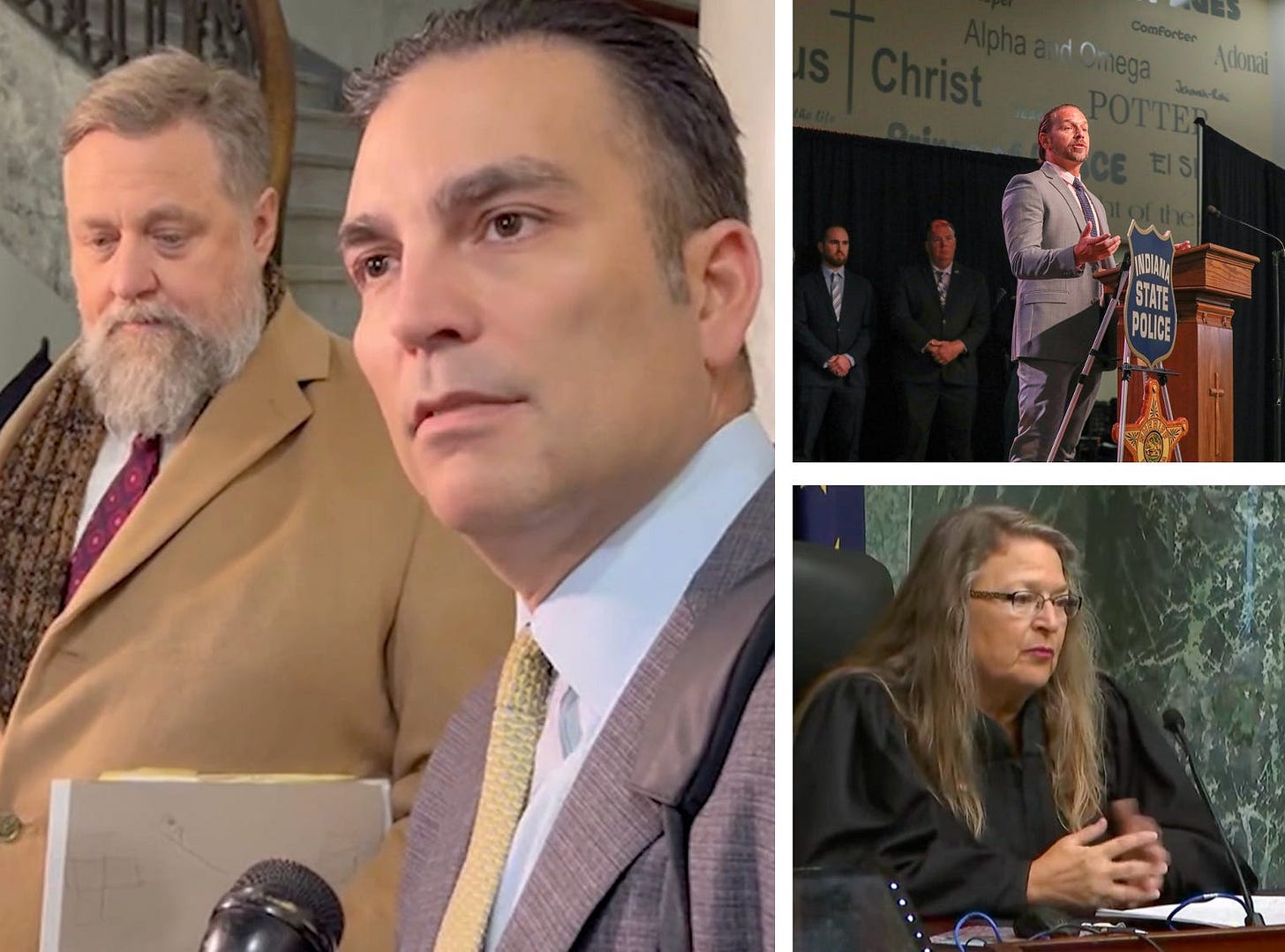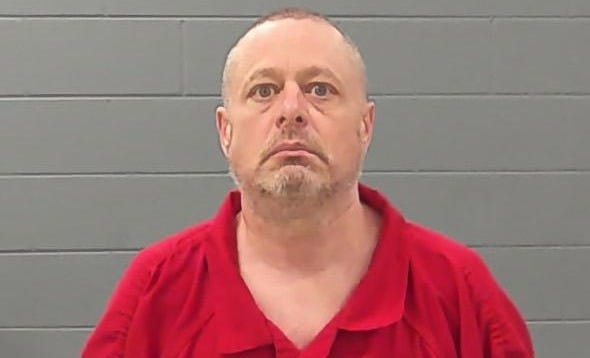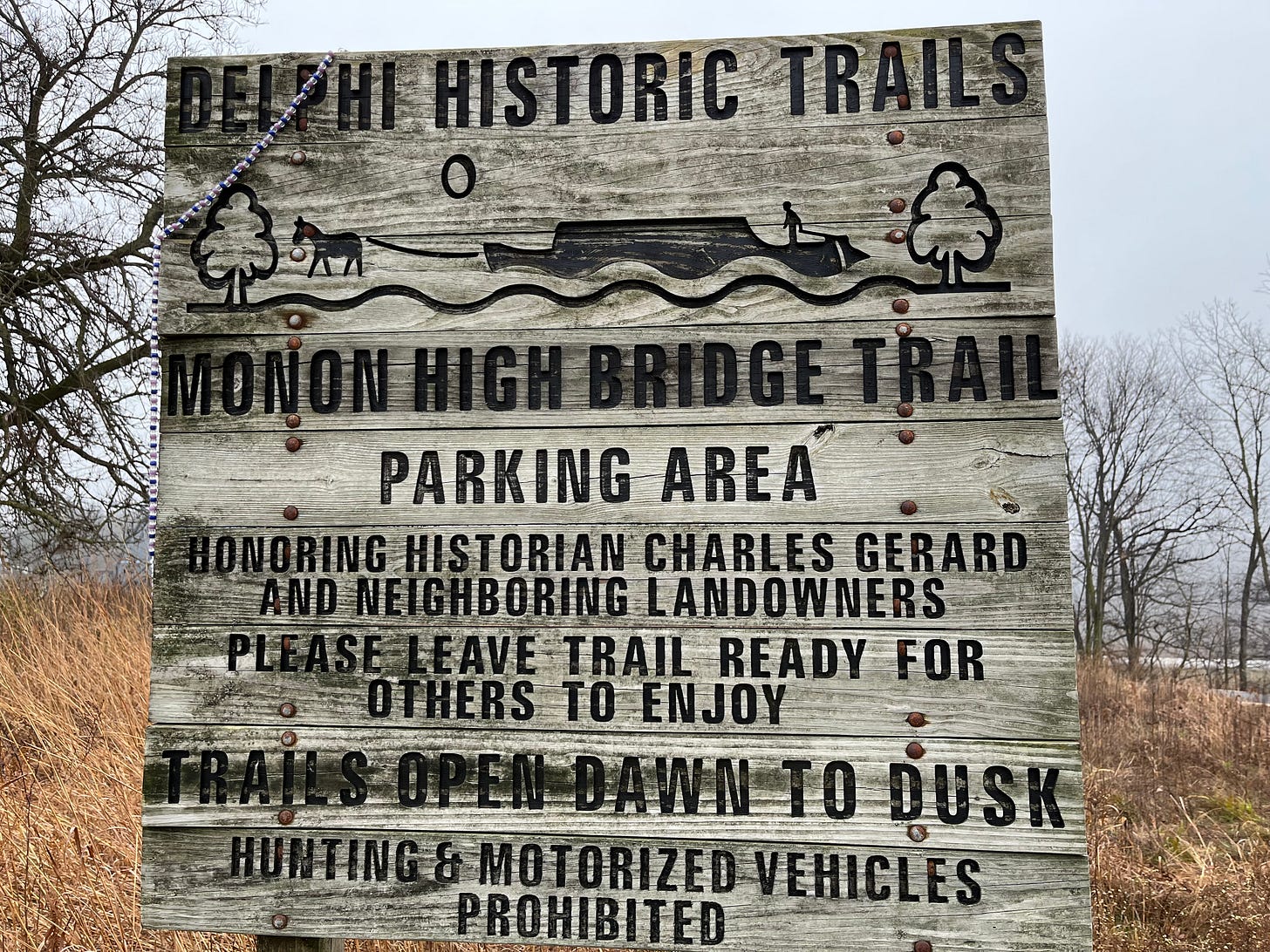Allen signals appeal on pretrial rulings in Delphi murder case
Allen’s attorneys say Judge Gull got it wrong by admitting confessions, ruling out third-party theory about ritualistic killings. If appeal is heard, trial could be delayed
Attorneys for Richard Allen, the 51-year-old Delphi man accused in the 2017 murders of teens Abby Williams and Libby German, signaled Monday that they want to appeal a series of pretrial rulings that dealt huge blows to his case before his trial is scheduled to start in October.
Specifically, Allen’s defense team wants the Indiana Court of Appeals to look at Judge Fran Gull’s rulings in recent weeks that would allow prison cell confessions police and others say Allen made since his arrest and that would block references to third-party defense his attorneys have floated that points to set of Odinist/Norse paganists who murdered the girls as part of a religious ritual.
The move first requires Gull, assigned to the Delphi case out of Allen County, to certify the court orders, essentially giving Allen’s attorneys a runway to ask the Indiana Court of Appeals to consider the motion, according the Indiana Judicial Branch’s description of interlocutory appeal process. The process gives Gull 30 days to respond before the motion is considered denied by the trial court.
“This motion is not made to unnecessarily delay the trial, but out of a sincere belief that this Court’s ruling in erroneous and will result in an unnecessary second trial should Richard Allen be found guilty,” Allen’s attorneys wrote in a motion filed late Monday afternoon.
“If Richard Allen is convicted without interlocutory appeal then he, as well as the families of the victims, would first suffer through the anticipation of a ruling from the Court of Appeals or Supreme Court on these critical issues and then whether a reversal will result in a second lengthy trial,” they wrote in the motion. “If the appeal in regular course (not interlocutory) results in a reversal then Richard Allen and the victims’ families will have to endure a second lengthy trial.”
As of Tuesday, Gull had not issued an order or a response.
Shay Hughes, a criminal defense attorney in Tippecanoe County, has been watching the Delphi murder case. He said he thought Gull would deny the motion. But if she verified the motion, Hughes said, the odds typically would be against the Indiana Court of Appeals accepting jurisdiction.
“Though I estimate Allen has better odds they’ll accept compared to an ordinary defendant given the publicity this case has received,” Hughes said. “If the Court of Appeals accepts, there is no way this will be wrapped up by Oct. 14. It will take at least nine months, likely longer.”
Allen’s trial is scheduled to start Oct. 14, with four days of jury selection in Allen County – 90 miles away from Delphi – before opening statements in Carroll Circuit Court. The trial is scheduled to run through mid-November.
A week ago, Gull ruled in favor of the prosecutor’s “in limine” motion to block certain words and concepts, key so far in Allen’s defense strategy.
Gull ruled that attorneys Brad Rozzi, Andrew Baldwin and Jennifer Auger hadn’t provided adequate admissible evidence during an Aug. 1 hearing to tie others to the crime, despite building a third-party defense around the Odinist ritualistic killing angle for more than a year, starting with a 136-page motion in September 2023. In her order, Gull wrote that the burden was on Allen’s attorneys “to show a nexus between Odinism, cult or ritualistic killing” or any of the names of the men attached to the third-party theory. Gull ruled that Allen’s attorneys had shown that “the nexus” of their case was based on admissible evidence that wasn’t “based on speculation, conjecture, rumors or hearsay.”
“The Court will not permit the evidence submitted by the defense in support of their arguments regarding third-party perpetrators in the trial of this cause, as the probative value of such evidence is greatly outweighed by confusion of the issues and its potential to mislead the jury,” Gull wrote.

During an Aug. 1 hearing, Allen’s attorneys argued several ways that a Logansport man – one accused of being among the Norse paganists, who prosecutors contend had an alibi that allowed investigators to clear him – had posted drawings and pictures on Facebook that were eerily similar to the crime scene. They presented a ritualistic crimes expert who called the crime scene a “textbook” case, with the girls left in seemingly significant poses and sticks resembling Norse runes arranged on their bodies. They also brought in a former Indiana State Police detective and a Rushville police officer who had pursue what they concluded as “an undeniable connection” between the Logansport man, another from the Delphi area and three men from Rushville who were wrapped up in a Norse pagan religion. One of those men, the former ISP detective testified, asked him after an interview in early 2018 whether, if traces of his spit were found on one of the girls but he could explain why, would he still be in trouble. They also testified that social media accounts showed that the men they were monitoring “seemed to know things that no one else would know unless they were involved or were there.”
Carroll County Prosecutor Nick McLeland peppered witnesses about whether their findings were basically just theories or were backed with evidence.
The ruling also wiped out the defense’s references to Kegan Kline, a convicted child pornographer from Miami County was behind a catfishing account that had been in contact with one of the girls; Ron Logan, the late owner of the land along Deer Creek where the girls’ bodies were found; and evidence of a geofencing report they contend will show that other cellphones were in the area of the Monon High Bridge at the time investigators say the murders happened.
Gull did leave room for Brad Rozzi and Andrew Baldwin, Allen’s attorneys, to bring in “evidence to support an offer of proof at the trial if one is made by counsel.”
In Monday’s motion, Allen’s attorneys argued that set up a scenario in which the jury would be sent out of the courtroom for hours or even days as they made the case for evidence to be allowed in the trial.
Two weeks ago, Gull ruled that jurors will be allowed to hear evidence that Allen allegedly confessed more than 60 times to his family, as well as to the warden, a psychologist and inmates assigned to watch him at Westville Correctional Facility while he was being held there. In court documents and during a full day of testimony on July 31, Allen’s attorneys argued that any self-incriminating statements came from an accused man whose physical and mental state had been broken and sent into a psychotic state by his pre-trial conditions in what amounted to solitary confinement in one of the worst units in the Westville Correctional Facility, a state prison. Gull disagreed, saying that a safekeeping order that had Allen waiting for trial in a prison instead of a county jail did not cause Allen to initiate calls to his family to talk about the murders or offer confessions to the prison psychologist.
In Monday’s motion, Allen’s attorneys argue again that Allen wasn’t given due process before he was sent to a prison cell, because Carroll County’s sherif said the jail wasn’t adequate to keep him safe.
About the case and the arrest: Abby Williams and Libby German, eighth-graders at Delphi Community Middle School, were killed Feb. 13, 2017, while on the town’s Monon High Bridge Trail. That day, Libby and Abby had taken advantage of a day off school and an unseasonably warm, winter afternoon to hike Delphi’s trails, taking off near the Freedom Bridge over Indiana 25/Hoosier Heartland Highway. When the girls didn’t show up that evening to meet their ride home, family and friends combed Delphi’s popular trail system, crossed an abandoned rail trestle called Monon High Bridge and brought in people to walk the woods that lined Deer Creek. The next morning, Feb. 14, 2017, a group of volunteers in a search party found the girls’ bodies, about a half-mile upstream from the Monon High Bridge.
Allen was charged in late October 2022, a big turn in a case that had gone unsolved for 5½ years and that hadn’t seen an arrest in that time. Investigators tied Allen to the scene after revisiting an interview with him in the days after the murders, when he told police he’d been on the trail that day, going to look at fish from the bridge, but had not seen the girls. Investigators say witness descriptions put Allen there. They also pointed to the discovery of an unspent bullet that they say they found near the girls’ bodies in February 2017 and that matched a handgun Allen owned, according to a probable cause affidavit made public months ago.
Court documents laid out that investigators believed Allen was the man shown in Libby German’s cellphone footage walking across the Monon High Bridge and kidnapping the girls, telling them, “Guys … down the hill,” and leading them to where their murders occurred near Deer Creek. Court documents indicate that investigators “believe they hear the sound of a gun being cycled and one of the victims mentioning ‘gun.’”
Allen’s attorneys have argued in court and in court documents that investigators ignored the possibility that a group of others, involved in a Norse religion ritualistic sacrifice, were involved in the girls’ murders.
Allen has been held without bond since his arrest in October 2022.
Thank you for supporting Based in Lafayette, an independent, local reporting project. Free and full-ride subscription options are ready for you here.
Tips, story ideas? I’m at davebangert1@gmail.com.





